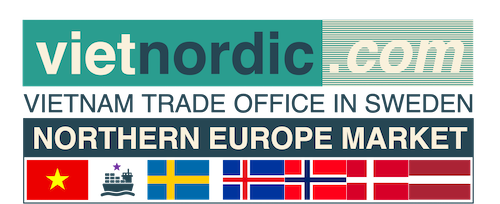The green transition trend in Nordic agriculture is thriving, with goals to reduce environmental impact, promote sustainability, and protect ecosystems. Nordic countries have pioneered advanced strategies to develop environmentally friendly agriculture by implementing high-tech systems for production process management and monitoring. Technologies such as sensors, artificial intelligence, and blockchain are employed to optimize resource use and ensure transparency in supply chains. These practices not only minimize waste but also enhance production efficiency, meeting the region’s stringent environmental standards.
One prominent trend in the Nordics is the promotion of organic farming and minimizing harmful chemicals. Governments in these countries encourage organic production through supportive policies and strict regulations limiting chemical use and pesticides. This ensures consumer safety, protects soil and water resources, and fosters a sustainable ecosystem.
Certification and traceability are essential in Nordic green agriculture strategies. Agricultural products entering this market must meet rigorous standards and offer clear traceability from production to consumer. Nordic nations are also developing sustainable supply chains that involve low-emission transportation methods and recyclable packaging. Transport companies, producers, and retailers in the region collaborate to optimize distribution processes, reducing CO2 emissions associated with product delivery.
A few specific Nordic initiatives illustrate the strong commitment to sustainable agriculture. Sweden, a leader in environmental protection, has developed the “Swedish Eco Footprint” initiative, focusing on carbon reduction through smart agricultural technology. Denmark has pioneered organic farming, with over 10% of its agricultural land converted to organic practices. The Danish government provides financial support to farmers adopting eco-friendly practices and has implemented strict chemical standards. Denmark’s “National Organic Action Plan” aims to increase organic production to 25% of total agriculture by 2030, including funding, training, and promoting organic products domestically and internationally.
These Nordic initiatives offer valuable lessons for Vietnam in building a sustainable agriculture model. The combination of high technology, government support, and corporate commitment plays a vital role in developing a green and sustainable agricultural industry. Vietnam can draw on these initiatives to transition its production model, strengthen sustainability, and enhance the global value of Vietnamese agricultural products.
Vietnam, aiming to shift towards green production and expand agricultural exports to stringent markets like the Nordics, can learn much from these sustainable models. High-tech applications in agriculture, such as sensors to monitor soil moisture and nutrients, help optimize water and fertilizer use. This not only conserves resources but also minimizes environmental impact. Emerging technologies like blockchain can further enhance transparency in production, instilling consumer trust through easy product traceability—an essential factor for the Nordic markets.
Vietnam should also advance organic farming and gradually reduce chemical usage in agriculture. Although transitioning to organic production requires significant effort and cost, it is an irreversible trend in the long term as demand for clean, safe products continues to rise.
Finally, Vietnam needs to improve its entire supply chain towards sustainability. This includes adopting environmentally friendly transportation, optimizing packaging, and enhancing product distribution to minimize emissions. Green supply chains not only meet Nordic market requirements but also create a competitive advantage for Vietnamese agricultural products, as consumers increasingly value environmental sustainability and choose products committed to protecting ecosystems.
(Nguyen Thi Hoang Thuy, Vietnam Commercial Counselor to Sweden, Denmark, Norway, Iceland, and Latvia)

